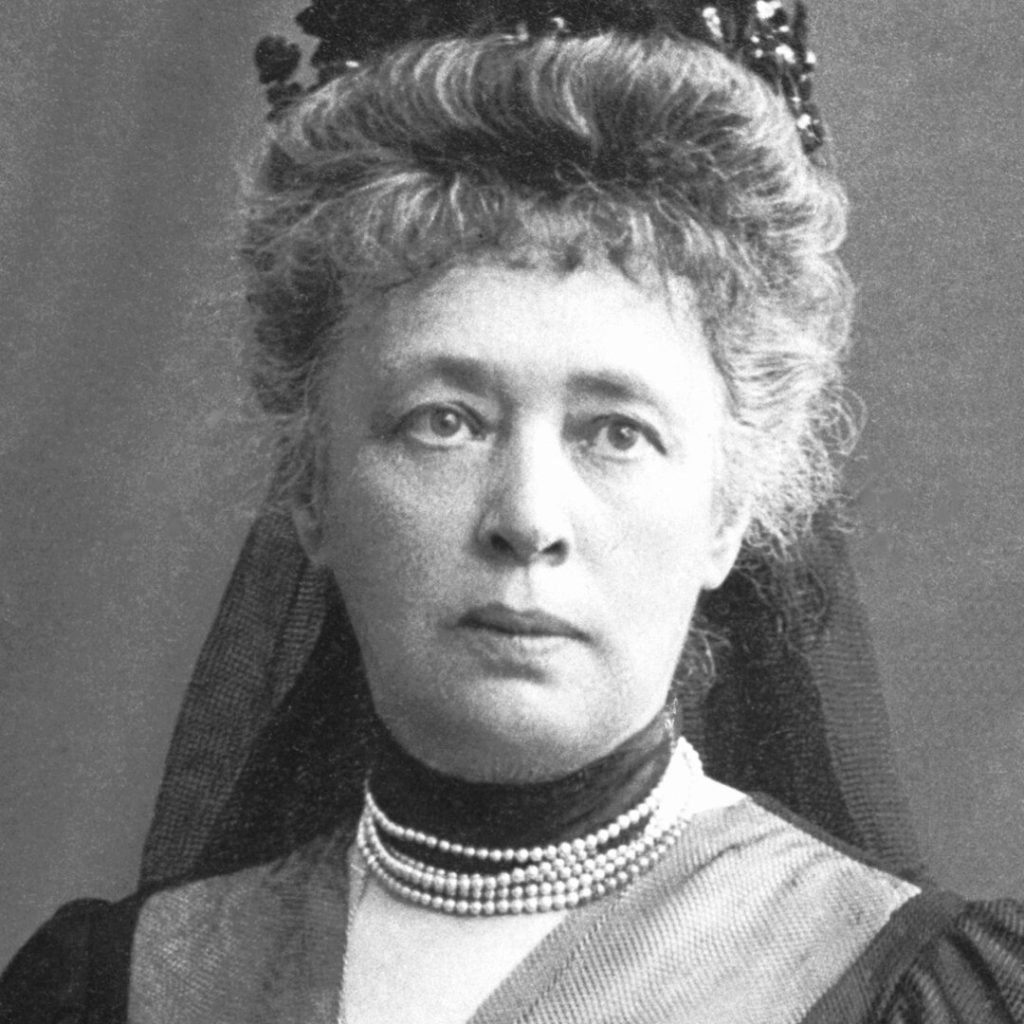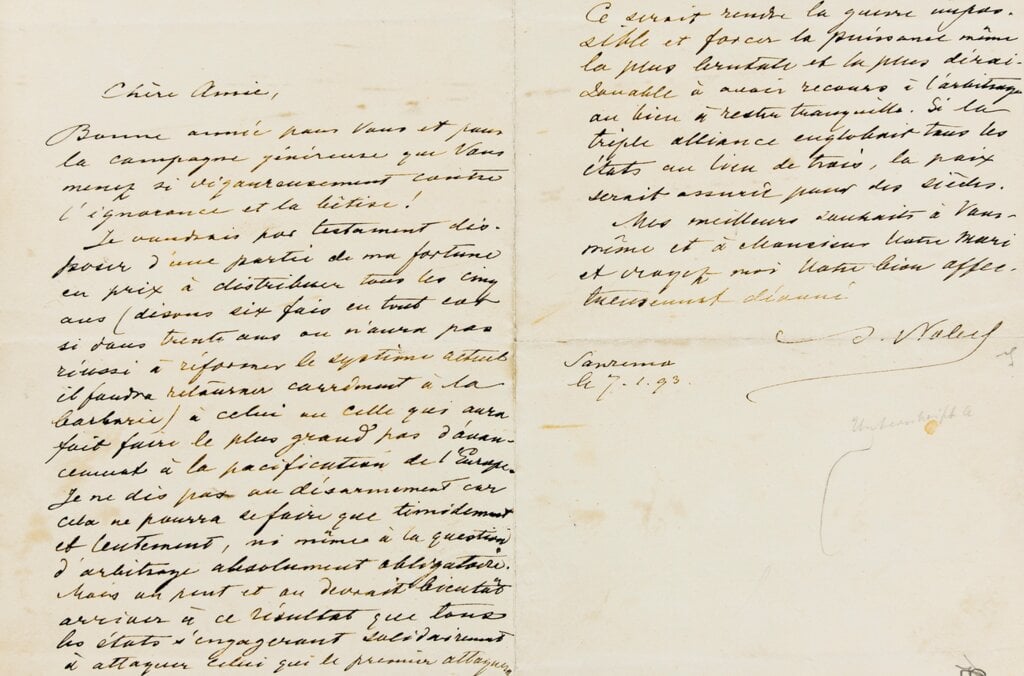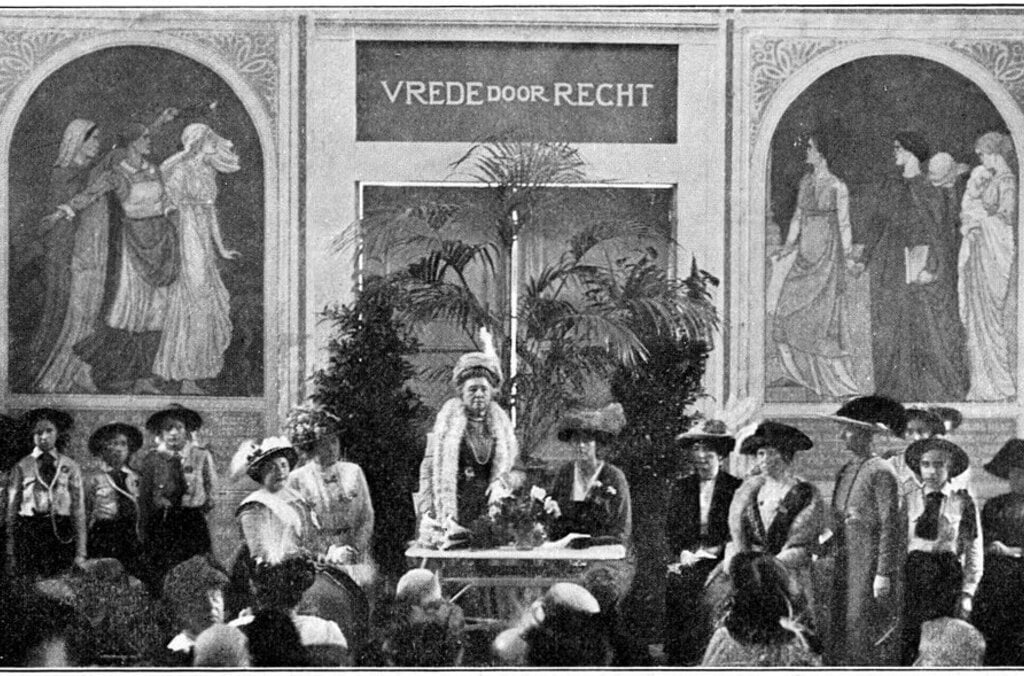Bertha von Suttner
Speed read
Bertha von Suttner was awarded the Nobel Peace Prize for her courageous opposition to the horrors of war.

Full name: Baroness Bertha Sophie Felicita von Suttner, née Countess Kinsky von Chinic und Tettau
Born: 19 June 1843 in Prague, Austrian Empire (now Czech Republic)
Died: 21 June 1914 in Vienna, Austria
Date awarded: 10 December 1905
The first woman to receive the peace prize
Peace advocates in Europe and the USA rejoiced when Austrian baroness Bertha von Suttner received the peace prize in 1905. Her 1889 novel Lay Down Your Arms! brought her worldwide renown. A scathing critique of war and militarism, the book appeared in numerous editions in several languages. In a short time she became one of the leaders of the international peace movement, helping to found the Austrian Peace Union and participating at peace congresses in Europe and the USA. Her energy and conviction made her a central figure in these male-dominated fora. At the dawn of the 20th century, few could write or speak about peace and disarmament with greater authority than Bertha von Suttner. She firmly believed that social development would lead to peace and happiness. She said, “From beneath the old, the new and promising is breaking through.”
"Quite apart from the peace movement … there is taking place in the world a process of internationalization and unification. Factors contributing to the development of this process are technical inventions, improved communications, economic interdependence, and closer international relations."
Bertha von Suttner, Nobel Lecture, 18 April 1906. Quoted from Nobel Lectures Peace 1901-25.
| Futurist optimism The belief that living conditions for humankind will improve in the future. This notion was especially popular in the West before WWI due to innovations in science and research and international treaties aimed at preventing war. |
Lay down your arms!
The novel’s heroine is the beautiful Martha, daughter of an Austrian general. An officer’s wife, she is widowed at a young age and left with a young son. She again marries an officer and again sees her husband head off to war. A cholera epidemic after the war costs Martha’s father and siblings their lives, but her husband survives and the two decide to dedicate their lives to the cause of peace. Bertha von Suttner’s book describes the horrors of war: “The wounded man’s face was no longer human. His lower jaw had been shot away entirely and one eye hung down his cheek. There was a sickly-sweet stench of blood and pus …”
Bertha von Suttner and Alfred Nobel
Bertha was born Countess Kinski von Chinic und Tettau, but her family lacked wealth. She took employment as governess for the family of Baron von Suttner in Vienna. Bertha fell in love with Arthur, the son of the house, but was forced to leave when the relationship was discovered. In 1876, she became Alfred Nobel’s secretary and housekeeper in Paris. However, she resigned after one week to elope with her beloved Arthur. She and Alfred Nobel developed a life-long friendship, corresponding frequently. There is little doubt that Bertha von Suttner played a major role in inspiring Alfred Nobel to establish the peace prize.

Nine years in the Caucasus
After their break with the von Suttner family in 1876, Bertha and Arthur settled in the Caucasus. She taught singing, music and language, and they both wrote articles for Western newspapers about conditions in the East. During this time Bertha made her debut as a novelist. She wrote several novels inspired by Darwin’s and Spencer’s theories of evolution and their optimism for the future. Returning to Paris in 1885, Bertha and Arthur sought intellectual circles. Bertha met her former employer Alfred Nobel, and she embraced the peace movement’s belief in arbitration as a means of preventing imminent war.
| Darwinism Name of the line of thinking developed by Charles Darwin (Great Britain) on the origin of the species. Life has evolved from simpler forms over billions of years, and only those species which have adapted best to changing conditions have survived. |
Peace is also about women’s rights!
Norwegian poet and peace activist Bjørnstjerne Bjørnson, a member of the Norwegian Nobel Committee, introduced Bertha von Suttner before her Nobel Lecture in 1906 by describing how she as a young woman in Austria had shown great courage in daring to shout, “Lay down your arms!” in a military state, despite being met with laughter and scorn. Bertha von Suttner began her career as an activist at a time when there was a general rise in the active participation of women in efforts to promote peace. The rights of women would not be achieved until the ideal of the warmongering male lost its sway, concluded Bjørnson.

Learn more
Baroness Bertha Felicie Sophie von Suttner, born Countess Kinsky in Prague, was the posthumous daughter of a field marshal and the granddaughter, on her mother’s side, of a cavalry captain ...
Disclaimer: Every effort has been made by the publisher to credit organisations and individuals with regard to the supply of photographs. Please notify the publishers regarding corrections.
Nobel Prizes and laureates
Six prizes were awarded for achievements that have conferred the greatest benefit to humankind. The 14 laureates' work and discoveries range from quantum tunnelling to promoting democratic rights.
See them all presented here.
